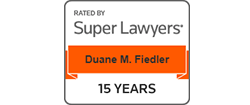When you file a claim with an insurance company after a car accident, their goal is to protect their own financial interest, despite the fact that they are also supposed to be the ones providing you with the compensation you deserve. It’s not unusual for them to engage in certain tactics to minimize their payout to whatever extent possible. Here’s what you should be aware of in these situations:
1. Minimizing the Claim
Adjusters often seek to downplay the gravity of your injuries or damages in an effort to minimize the payout they have to provide you. They may argue that your injuries aren’t as severe as claimed or that pre-existing conditions are the true source of your pain rather than the accident. They might also assert that vehicle damages aren’t connected to this particular incident – the ultimate intent being to devalue your claim and offer a lower settlement amount.
2. Disputing Medical Treatments
Another common technique used by insurance adjusters involves scrutinizing medical bills and treatments you received following an accident.
Adjusters could argue certain procedures were unnecessary, which can reduce payouts. They may also contend that the costs are higher than industry standards, pushing victims towards settling for less than what they really spent.
3. Quick Settlement Offers
Insurance adjusters typically aim to settle cases as soon after the accident as possible. The initial quick settlement offers are often lower than they really should be. Many injured parties are eager to get any kind of settlement to help pay for immediate lost wages and medical expenses that they don’t think to wait for a better settlement offer.
By accepting an early offer, you could lose out on compensation for damages that become apparent later, such as long-term care or treatment.
4. Requesting Unnecessary Information
In what might seem like due diligence, adjusters sometimes ask for extensive documentation or make repeated requests – which is often used to delay the settlement process. This stalling can be incredibly frustrating, and it may compel some claimants to settle for less out of desperation.
Additionally, obtaining excessive statements and information from you might be an attempt to find inconsistencies they can use as justification to lower your compensation or deny the claim altogether.
5. Shifting Blame
It’s not unusual for insurance adjusters to shift some degree of blame onto the claimant to minimize their liability. They may examine evidence from police reports or witness statements with an eye towards interpreting facts in a way that implies you share fault in causing the accident, which could lead them to reduce your settlement amount.
6. Looking at Social Media
Insurance adjusters increasingly turn to claimants’ social media activities for evidence that might contradict claims of severe injury or emotional distress. Public posts, photographs or even location check-ins on platforms like Facebook, Instagram, and X (Twitter) can be used out of context to suggest that you are more physically capable and comfortable than you claim.
Navigating conversations and negotiations with insurance companies requires knowledge and skill to ensure your rights are fully protected. The best way to do this is to work with an experienced personal injury attorney who knows the tactics and how to counteract them. For help, contact us today to schedule a free consultation with a Westchester County personal injury lawyer.
 Because Relationships Matter
Because Relationships Matter 

















